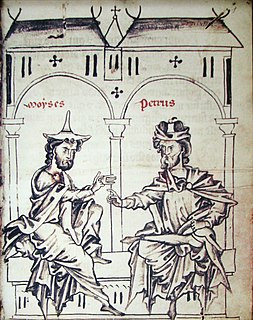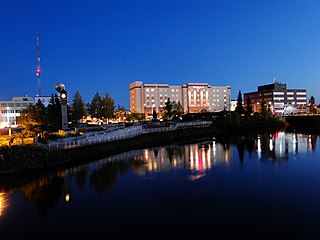
Frances Ann "Fran" Ulmer is an American administrator and Democratic politician from the U.S. state of Alaska. She served as lieutenant governor of Alaska from 1994 to 2002 under Governor Tony Knowles, becoming the first female elected to statewide office in Alaska. She later served as the Chancellor of the University of Alaska Anchorage (UAA).

Lisa Ann Murkowski is an American politician serving as the senior United States Senator from Alaska, having held that seat since 2002. She is a member of the Republican Party, and is the second most senior Republican woman in the Senate. Along with Susan Collins from Maine, she is frequently described as one of the most moderate Republicans in the Senate and is a crucial swing voter.

United States gubernatorial elections were held on November 7, 2006 in 36 states and two territories.

The 2006 Alaska gubernatorial general election took place on November 7, 2006. The former mayor of Wasilla, Sarah Palin, was elected governor.
Political party strength in Alaska has varied over the years. The communities of Juneau, Sitka, downtown and midtown Anchorage, the areas surrounding the College/University of Alaska Fairbanks campus and Ester and the "Alaska Bush" – rural, sparsely populated Alaska – stand out as Democratic strongholds, while the Kenai Peninsula, Matanuska-Susitna Valley, parts of Anchorage, and Fairbanks, Ketchikan, Wrangell, and Petersburg serve as the Republican Party electoral base. As of 2004, well over half of all registered voters have chosen "Non-Partisan" or "Undeclared" as their affiliation, despite recent attempts to close primaries.

The 2004 Indiana gubernatorial election took place on November 2, 2004, to elect the Governor of Indiana.

The 1994 Alaska gubernatorial election took place on November 8, 1994, for the post of Governor of Alaska, United States. Democratic candidate Tony Knowles narrowly defeated Republican candidate Jim Campbell and Lieutenant Governor Jack Coghill of the Alaskan Independence Party. In the Republican Revolution year of the 1994 elections, Alaska's was the only governor's seat in the country to switch from Republican to Democratic.

The 2004 United States Senate election in Alaska took place on November 2, 2004, alongside other elections to the United States Senate in other states as well as elections to the United States House of Representatives, various state and local elections, and the presidential election of that year. Incumbent Republican U.S. Senator Lisa Murkowski of Anchorage, sought election to her first full term after being appointed to serve out the rest of her father's unexpired term when he resigned in December 2002 to become Governor of Alaska. Her main challenger was Democratic former governor Tony Knowles, her father's predecessor as governor. Murkowski won by a slight margin.

The 2010 United States Senate election in Alaska took place on November 2, 2010, alongside 33 other U.S. Senate elections in other states, as well as elections in all states for Representatives to the U.S. House, and various state and local offices.

The 2010 Alaska gubernatorial election took place on November 2, 2010. Former Governor Sarah Palin did not run, having resigned in July 2009. Incumbent Governor Sean Parnell, who as lieutenant governor succeeded Palin following her resignation, announced that he would seek a full term.
Donald Rose Wright was an American politician from Alaska.

Joseph Wayne Miller is an American attorney and politician.

The 2014 United States Senate election in Alaska took place on November 4, 2014, to elect a member of the United States Senate to represent the State of Alaska, concurrently with the election of the governor of Alaska, as well as other elections to the United States Senate in other states and elections to the United States House of Representatives and various state and local elections.

The 2014 Alaska gubernatorial election took place on November 4, 2014, to elect the governor and lieutenant governor of Alaska, concurrently with the election of Alaska's Class II U.S. Senate seat, as well as other elections to the United States Senate in other states and elections to the United States House of Representatives and various state and local elections.
Jerry Ward is an American politician and businessman.

The 2016 United States Senate election in Alaska was held on November 8, 2016, to elect a member of the United States Senate to represent the State of Alaska, concurrently with the 2016 U.S. presidential election, as well as other elections to the United States Senate in other states and elections to the United States House of Representatives and various state and local elections.

William Martin Walker is an American attorney and politician who served as the 11th governor of Alaska, from 2014 to 2018. He is the second native-born governor of Alaska after William A. Egan.

The 2016 United States House of Representatives election in Alaska was held on November 8, 2016, to elect the U.S. Representative from Alaska's at-large congressional district, who will represent the state of Alaska in the 114th United States Congress. The election coincided with the 2016 U.S. presidential election, as well as other elections to the House of Representatives, elections to the United States Senate and various state and local elections.
Tuckerman Babcock is a political strategist and chairman of the Alaska Republican Party.























